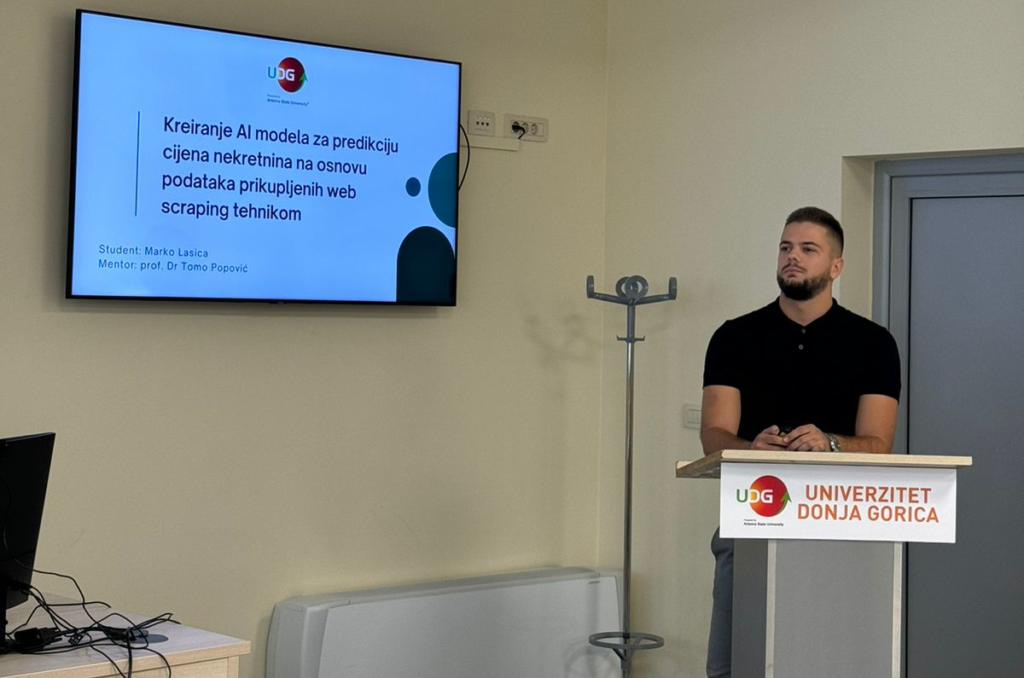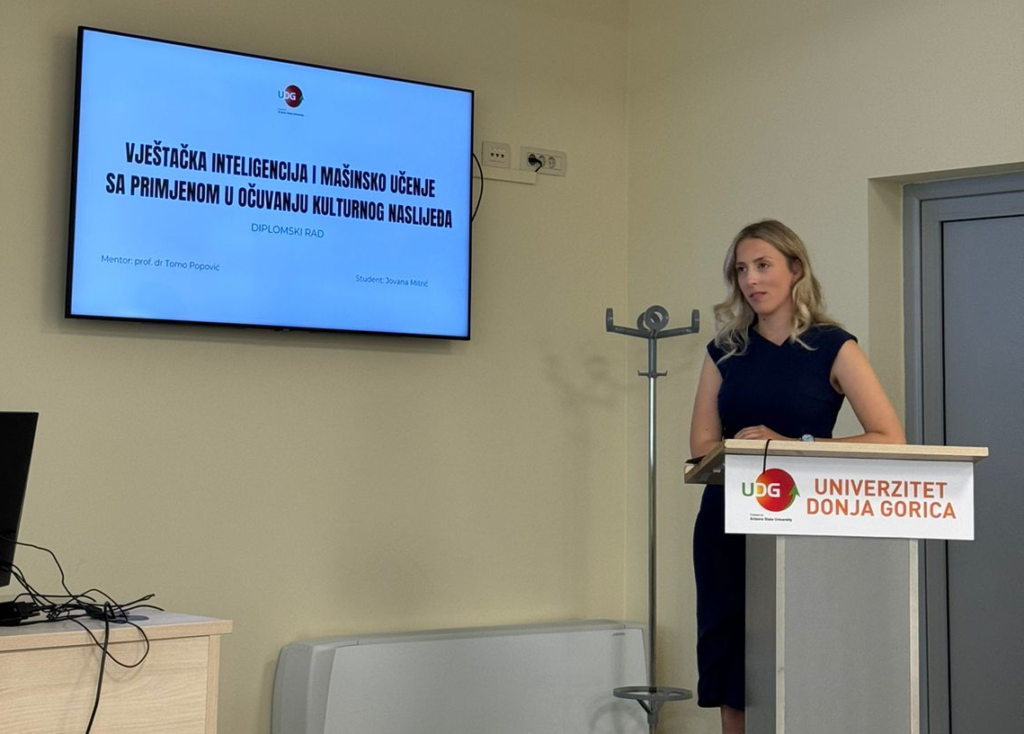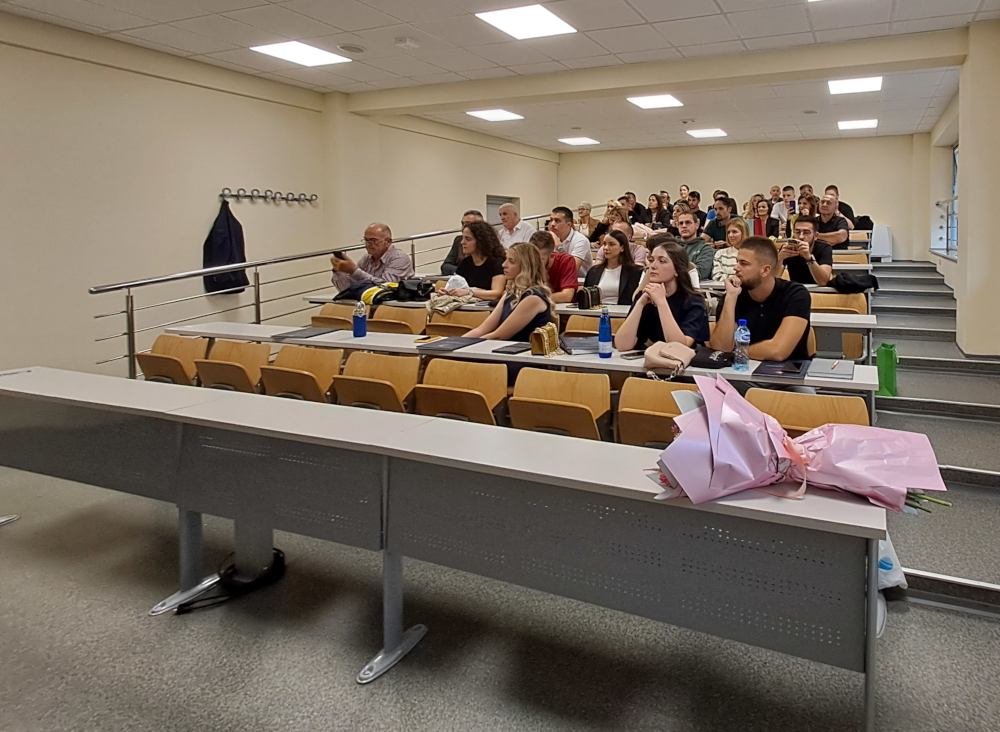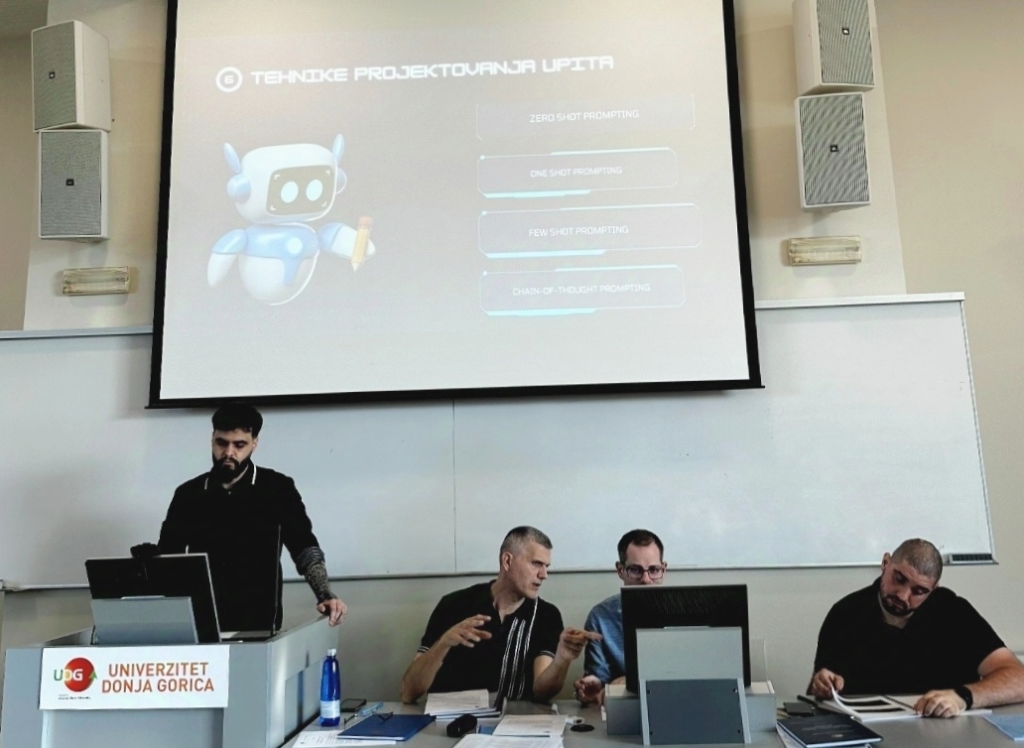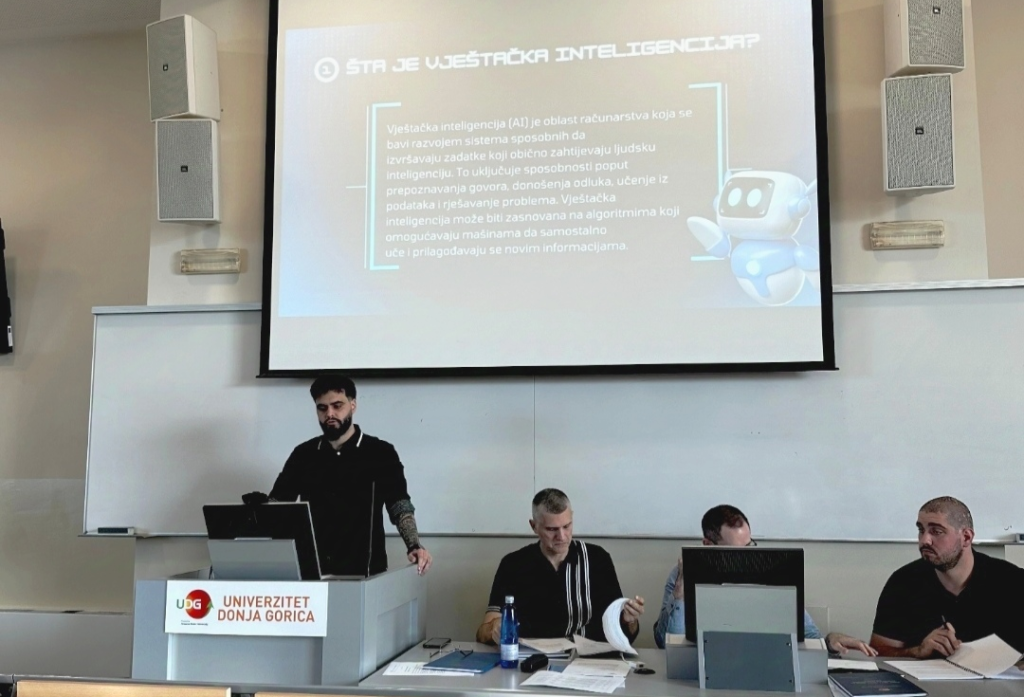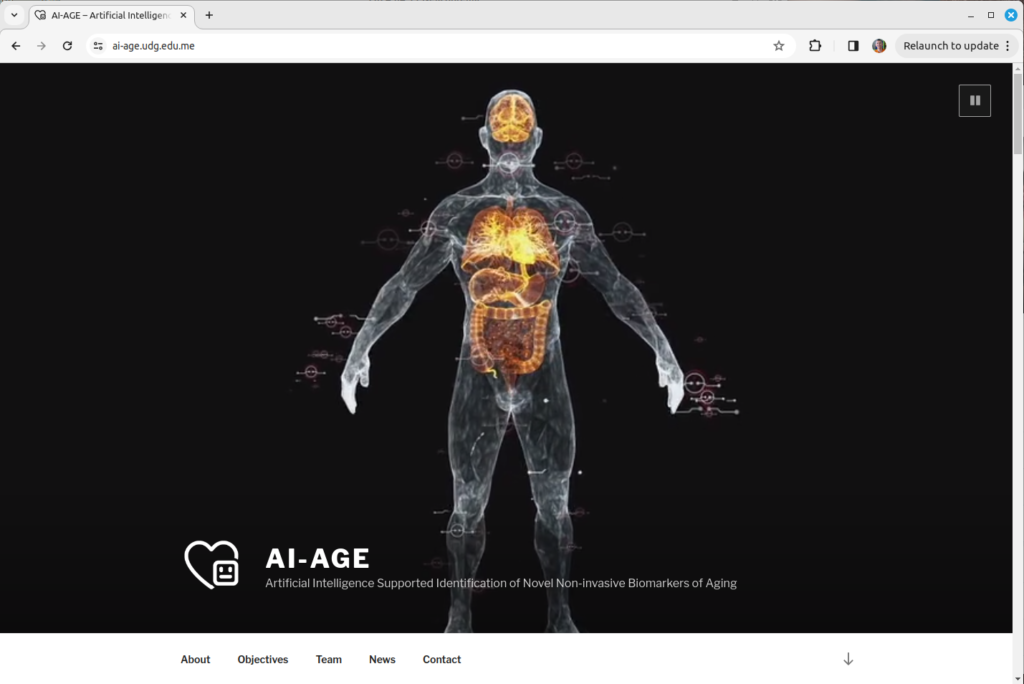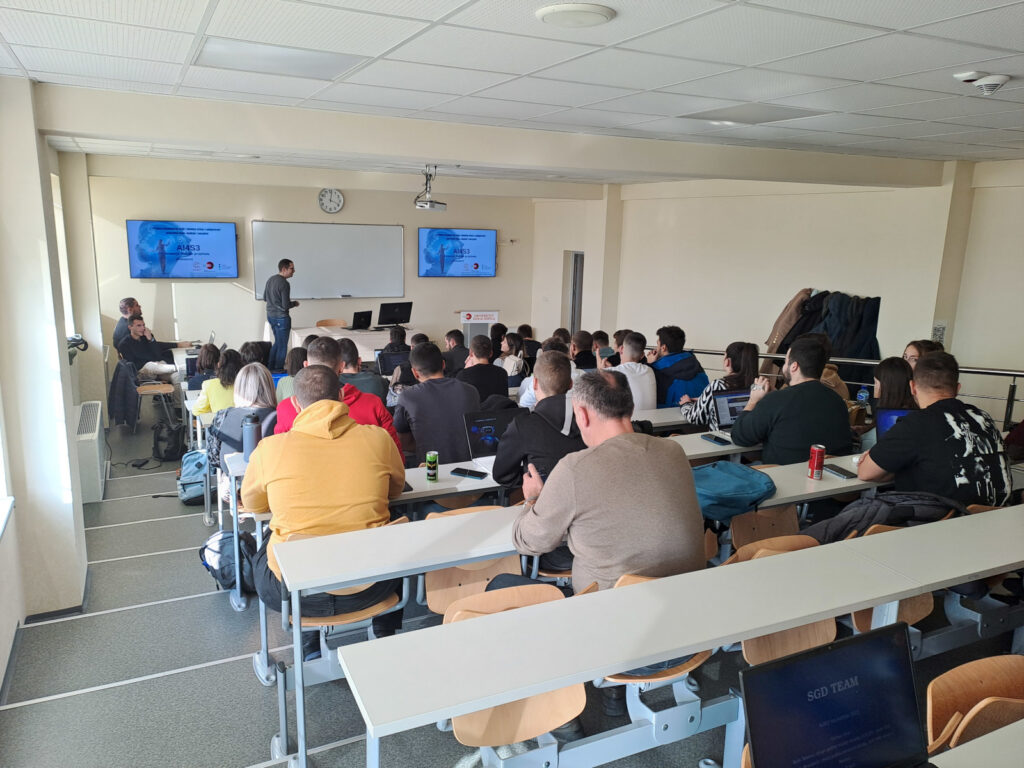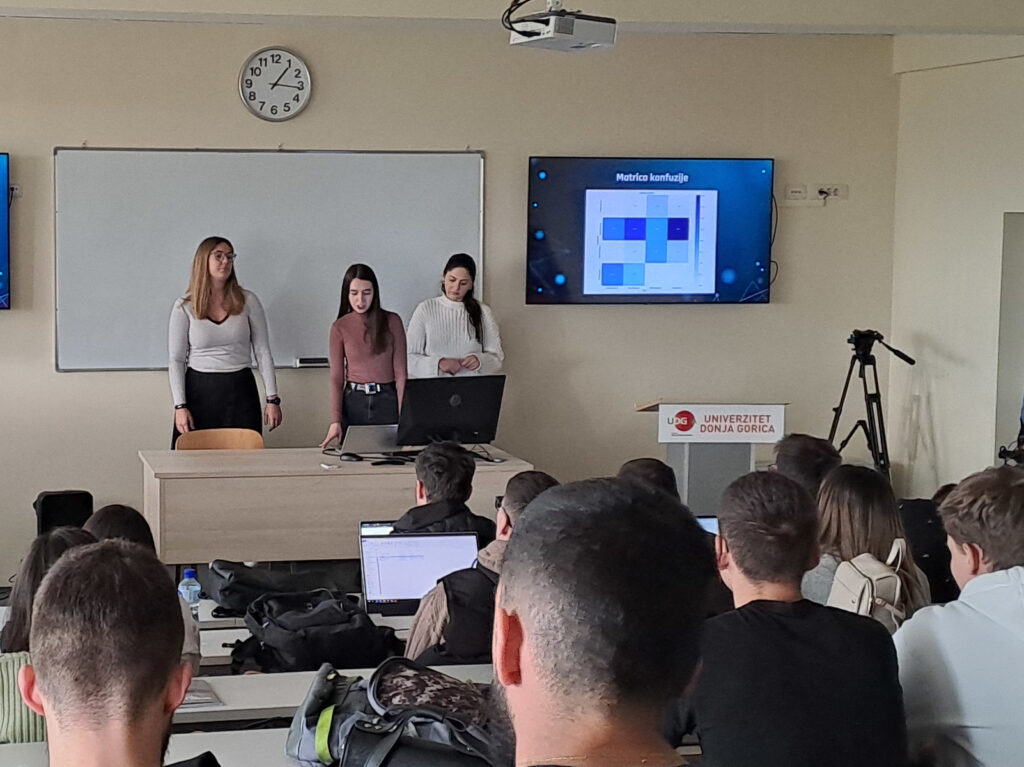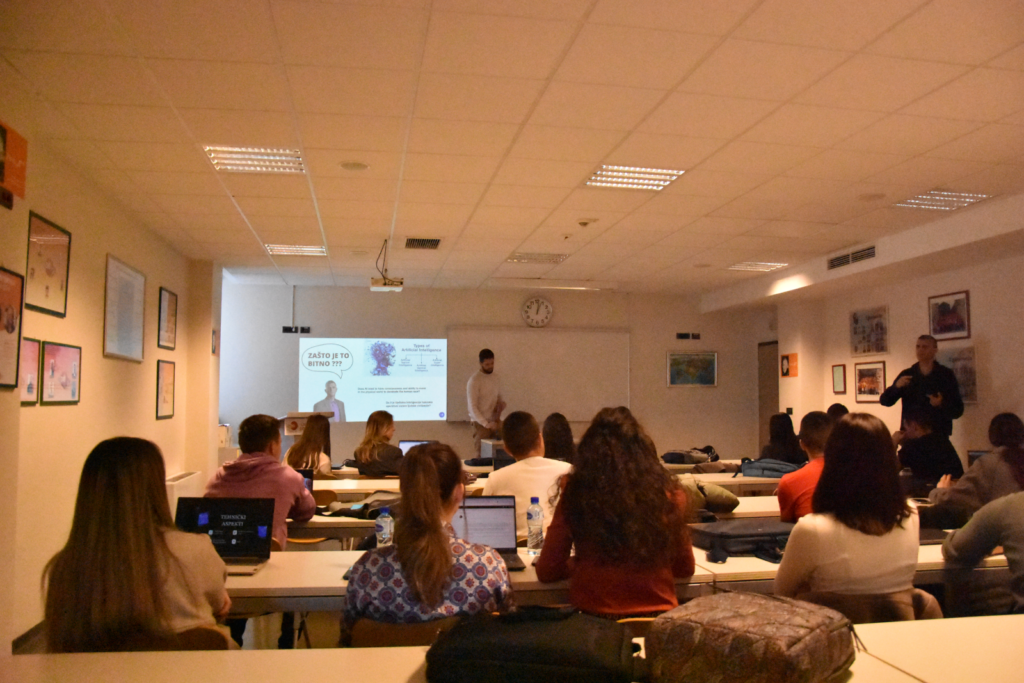Mr Marko Lasice defended his BSc thesis on AI powered real estate pricing. The future work will include larger datasets and explorig the use of HPC and AI to train more precise price estimation models. The work was supported by the NCC Montenegro and HPC4S3ME team members.
ABSTRACT – The development of generative models and exponential progress in artificial intelligence have opened up new application possibilities in many areas of economic life. One of the possibilities is developing an AI model for predicting market prices based on data extracted from the web. This paper introduces the reader to the technique of automated downloading and grouping of data from the web, known as web scraping, and the development of a predictive model that, based on the collected data, would predict real estate prices. The paper presents the practical part of the work, the implementation of a predictive model developed using the decision tree technique. In conclusion, the work contributes to the understanding of how the combination of these techniques improves decision-making processes in the real estate market.
